At What Point Should You Consider Replacing The Pool Heater
Your swimming pool heater is as important as any other piece of pool equipment. Beating the heat in your fibreglass pool is fun and relaxing but why not also use it during the chilly winter months? A functional pool heater can keep the fun going even in winter when it’s cold outside. Stepping into a warm pool in winter can be a comfortable feeling. For that, timely maintenance or replacement of the pool heater is important.
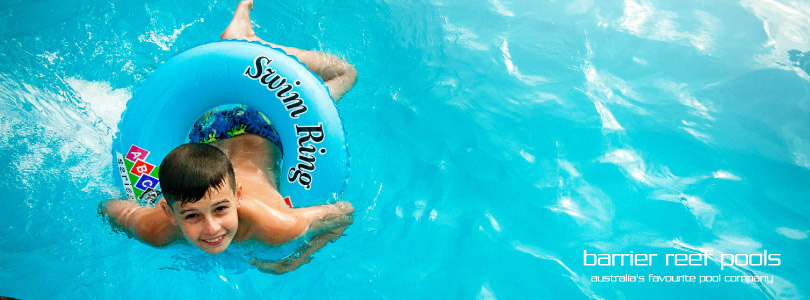
Pool heaters also wear out over time just like the pool pump and other equipment. A well-maintained and good-quality pool heater can maximise your swimming season and keep it going all through the year. Yearly maintenance of pool heaters is a good way to keep them functioning for a long time. Timely inspections help in keeping the heater working and save you from last-minute faux pas.
Most good pool heaters are durable and run for ten to fifteen years when maintained properly. However, everything has an expiration date and so do heaters. The important thing is to understand when to replace or repair your pool pump.
The telltale signs to look for
- The pool heater is corroded and rusty
- The heater won’t start
- The pool water is not getting warm enough
- The heater is making a weird noise
- The heater turns on and off frequently on its own
Several issues may lead to the need for a pool heater replacement. The most common problems are listed here.
Corroded and rusty pool heater
Well-maintained pool heaters won’t cause this trouble. If your heater has not been attended to for months, it may get rusted and the parts may get jammed. That would lead to several other issues like problems in starting or even working right. To keep the heater in ship shape, a bi-yearly or at least a yearly maintenance/servicing schedule should be carried out.
The age of your pool heater also matters. Nothing is designed to last forever. If your pool heating equipment is decades old, you should think of a newer, better, more efficient solution.
The pool heater won’t turn on
When the pool heater does not start, it does not always lead to problems in the power connection. Even if the filter is clogged, starting problems can develop. Also, check for corroded terminals. To make things easier for users, several modern pool heaters are designed with a display panel. It has indicator lights that show errors and messages to keep you well-informed about the problem area. In case of internal troubles in the machine, you must take the help of expert technicians to decide if it can be repaired or need a replacement.
Do not delay. Such issues should be addressed immediately to avoid further damage and to keep your pool functional even in the icy cold weather.
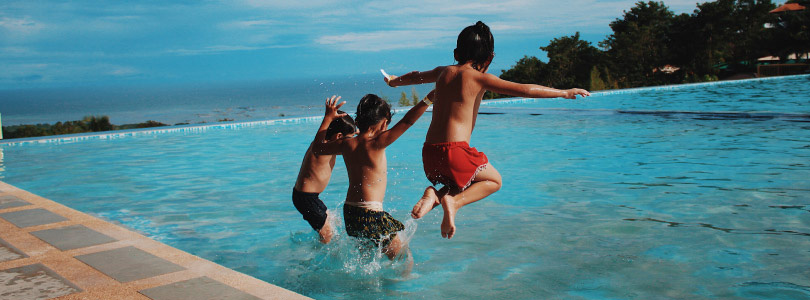
The pool heater turns on but stops working after a while
In such situations, the first thing you must check is the thermostat setting. It should be at a higher level than your pool water temperature.
If there is a technical reason behind the sudden shutting down of the pump, it may be due to a dirty or worn-off flame sensor.
Some pool heaters have built-in flame sensors that monitor the ignition system. In case, the gas does not ignite it causes the gas valve to shut off temporarily before trying to switch it on again. That leads to the erratic off-and-on sequence. Another reason for this problem could be resulting from the ignition control. If the sensor fails to read the signal it could malfunction.
These problems can be detected by technicians who can guide you with the best solution. If the problem can be resolved with repairs your old pool heater can serve you more. If not, you can always think of replacing it.
Inadequate heating of pool water
A malfunctioning pool heater may have trouble heating the pool to its optimal level. Clogged, unclean pool filters may also result in inappropriate pool heating. One thing to consider is also the size of the heater. Have you installed the correct heater size compared to your fibreglass pool? Various pool pumps are designed to heat a certain amount of water. If your pool is too big and the heater generates less heat, the water will be insufficiently heated. Make sure you have a powerful enough heater to match your pool size and that the filters are clean enough to rotate the pool water for equal heat distribution.
The heater turns off before reaching the optimal temperature
Sometimes, the pool heater may turn off for a while before reaching the set temperature. For example, if the temperature is at 90, but the heater turns off when it reaches 85. A possibility of this problem may be a faulty thermal regulator. It could also happen from a clogged water jet which is reducing the water flow to the pool. If you see such signs, it’s an indication to get your pool pump checked.
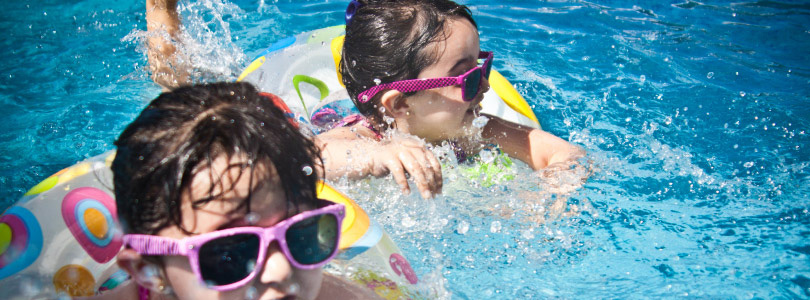
Noisy pool heater
A pool heater with any unusual, annoyingly loud sound is not only a disturbance creator but also a sign that there is something wrong with the heating equipment. If you hear any grinding, or vibrating sound that’s not normal, get your pool heater checked. Smaller problems when neglected may lead to larger issues resulting in the requirement of replacing the pool pump. Damaged pressure switches may also create unpleasant noises.
In case you need to replace your pool heater, you must know your choices. Pool heaters come in different varieties.
Types of swimming pool heaters
As the name suggests, these pool heaters run on electricity. Water flows over a resistor unit while it is heated. The water circulates in the pool increasing the overall water temperature. They work better in smaller swimming pools. Some of the pros of electric pool heaters are that they are relatively less expensive and do not cause emissions while working. The cons are energy inefficiency and higher operating expenses.
These are the most common pool heaters and run either on natural gas or propane. The pros of gas pool heaters are, they are cheaper to install, heat the pool fast, and the temperature can be controlled using a thermostat. The con is the high monthly operating cost.
These kinds of pumps extract heat from the air and are energy efficient. They work in a similar fashion to the air conditioner unit, but the function is reversed! The good thing about these pool heaters is, they have lower maintenance costs, are clean, and are economical. The cons are, slow heating rate as compared to gas heaters.
As the name says, these pool heaters use the energy of the sun to heat water. They are energy efficient, clean, and need less maintenance and running costs. The cons of these heaters are, they do not work well for indoor swimming pools and heat outdoor swimming pools slowly. The cost of buying and installing is also high.
Conclusion
If you plan to use your pool in winter, a pool heater is a must! When you install any heating equipment, you have to pay attention to its maintenance even if you’re not using it all through the year. However, with time all machines go through wear and tear and have to be replaced. It helps to know the telltale signs of a malfunctioning pool heater to get it checked or replaced on time.
When investing in a new heater, keep certain things in mind:
- The type of pool heater.
- Size of your pool.
- The amount of energy a heater consumes.
- The location and average daily temperature of your home.
- Type of your pool (Above-ground/In-ground).
- Pre-existing hookups.
- Cost of electricity or natural gas.
- Desired pool temperature.
A pool heater helps to keep your swimming pool at a constant and comfortable temperature all year round, regardless of outdoor temperatures. It can also help reduce the costs associated with running the pump and filter system by allowing you to use it less often.
If you don’t plan on using your pool in winter months, then technically no – you do not need a pool heater. However, even when not in use, keeping your water temperature consistently warm during colder weather can help ensure that algae growth and other unwanted contaminants are kept under control until next season. That said, if budget is an issue for you or if you live in milder climates where the temperature rarely drops too low then heating may be optional.
Pool heaters are available in different types, each with its own advantages and disadvantages. Most use gas or electric to quickly raise the temperature of the pool’s water. Solar is another type which is more efficient and eco-friendly but does take longer to heat the water. Heat pumps offer excellent energy efficiency by taking advantage of air around them instead of burning fuel for heat production.
At What Point Should You Consider Replacing The Pool Heater
Your swimming pool heater is as important as any other piece of pool equipment. Beating the heat in your fibreglass pool is fun and relaxing but why not also use it during the chilly winter months? A functional pool heater can keep the fun going even in winter when it’s cold outside. Stepping into a warm pool in winter can be a comfortable feeling. For that, timely maintenance or replacement of the pool heater is important.
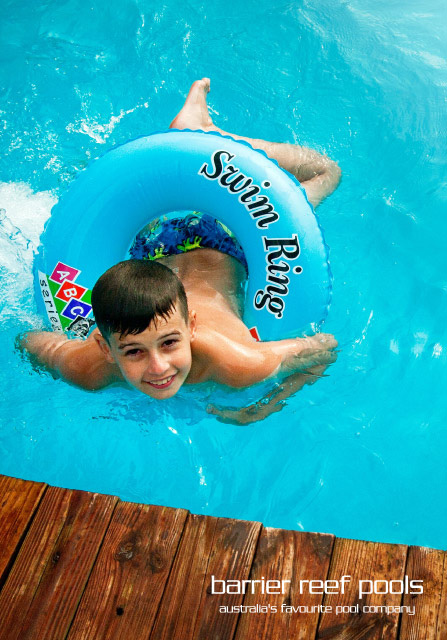
Pool heaters also wear out over time just like the pool pump and other equipment. A well-maintained and good-quality pool heater can maximise your swimming season and keep it going all through the year. Yearly maintenance of pool heaters is a good way to keep them functioning for a long time. Timely inspections help in keeping the heater working and save you from last-minute faux pas.
Most good pool heaters are durable and run for ten to fifteen years when maintained properly. However, everything has an expiration date and so do heaters. The important thing is to understand when to replace or repair your pool pump.
The telltale signs to look for
- The pool heater is corroded and rusty
- The heater won’t start
- The pool water is not getting warm enough
- The heater is making a weird noise
- The heater turns on and off frequently on its own
Several issues may lead to the need for a pool heater replacement. The most common problems are listed here.
Corroded and rusty pool heater
Well-maintained pool heaters won’t cause this trouble. If your heater has not been attended to for months, it may get rusted and the parts may get jammed. That would lead to several other issues like problems in starting or even working right. To keep the heater in ship shape, a bi-yearly or at least a yearly maintenance/servicing schedule should be carried out.
The age of your pool heater also matters. Nothing is designed to last forever. If your pool heating equipment is decades old, you should think of a newer, better, more efficient solution.
The pool heater won’t turn on
When the pool heater does not start, it does not always lead to problems in the power connection. Even if the filter is clogged, starting problems can develop. Also, check for corroded terminals. To make things easier for users, several modern pool heaters are designed with a display panel. It has indicator lights that show errors and messages to keep you well-informed about the problem area. In case of internal troubles in the machine, you must take the help of expert technicians to decide if it can be repaired or need a replacement.
Do not delay. Such issues should be addressed immediately to avoid further damage and to keep your pool functional even in the icy cold weather.

The pool heater turns on but stops working after a while
In such situations, the first thing you must check is the thermostat setting. It should be at a higher level than your pool water temperature.
If there is a technical reason behind the sudden shutting down of the pump, it may be due to a dirty or worn-off flame sensor.
Some pool heaters have built-in flame sensors that monitor the ignition system. In case, the gas does not ignite it causes the gas valve to shut off temporarily before trying to switch it on again. That leads to the erratic off-and-on sequence. Another reason for this problem could be resulting from the ignition control. If the sensor fails to read the signal it could malfunction.
These problems can be detected by technicians who can guide you with the best solution. If the problem can be resolved with repairs your old pool heater can serve you more. If not, you can always think of replacing it.
Inadequate heating of pool water
A malfunctioning pool heater may have trouble heating the pool to its optimal level. Clogged, unclean pool filters may also result in inappropriate pool heating. One thing to consider is also the size of the heater. Have you installed the correct heater size compared to your fibreglass pool? Various pool pumps are designed to heat a certain amount of water. If your pool is too big and the heater generates less heat, the water will be insufficiently heated. Make sure you have a powerful enough heater to match your pool size and that the filters are clean enough to rotate the pool water for equal heat distribution.
The heater turns off before reaching the optimal temperature
Sometimes, the pool heater may turn off for a while before reaching the set temperature. For example, if the temperature is at 90, but the heater turns off when it reaches 85. A possibility of this problem may be a faulty thermal regulator. It could also happen from a clogged water jet which is reducing the water flow to the pool. If you see such signs, it’s an indication to get your pool pump checked.
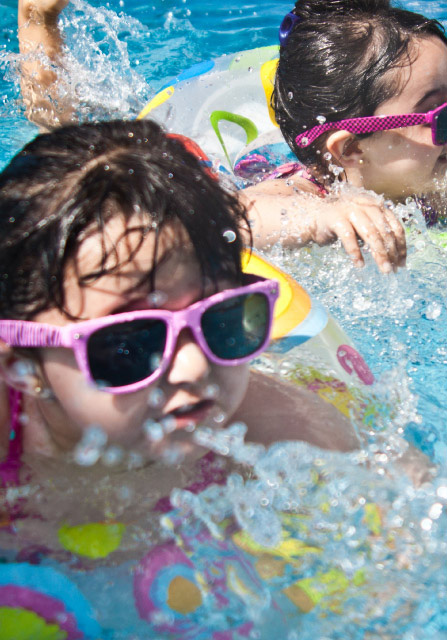
Noisy pool heater
A pool heater with any unusual, annoyingly loud sound is not only a disturbance creator but also a sign that there is something wrong with the heating equipment. If you hear any grinding, or vibrating sound that’s not normal, get your pool heater checked. Smaller problems when neglected may lead to larger issues resulting in the requirement of replacing the pool pump. Damaged pressure switches may also create unpleasant noises.
In case you need to replace your pool heater, you must know your choices. Pool heaters come in different varieties.
Types of swimming pool heaters
As the name suggests, these pool heaters run on electricity. Water flows over a resistor unit while it is heated. The water circulates in the pool increasing the overall water temperature. They work better in smaller swimming pools. Some of the pros of electric pool heaters are that they are relatively less expensive and do not cause emissions while working. The cons are energy inefficiency and higher operating expenses.
These are the most common pool heaters and run either on natural gas or propane. The pros of gas pool heaters are, they are cheaper to install, heat the pool fast, and the temperature can be controlled using a thermostat. The con is the high monthly operating cost.
These kinds of pumps extract heat from the air and are energy efficient. They work in a similar fashion to the air conditioner unit, but the function is reversed! The good thing about these pool heaters is, they have lower maintenance costs, are clean, and are economical. The cons are, slow heating rate as compared to gas heaters.
As the name says, these pool heaters use the energy of the sun to heat water. They are energy efficient, clean, and need less maintenance and running costs. The cons of these heaters are, they do not work well for indoor swimming pools and heat outdoor swimming pools slowly. The cost of buying and installing is also high.
Conclusion
If you plan to use your pool in winter, a pool heater is a must! When you install any heating equipment, you have to pay attention to its maintenance even if you’re not using it all through the year. However, with time all machines go through wear and tear and have to be replaced. It helps to know the telltale signs of a malfunctioning pool heater to get it checked or replaced on time.
When investing in a new heater, keep certain things in mind:
- The type of pool heater.
- Size of your pool.
- The amount of energy a heater consumes.
- The location and average daily temperature of your home.
- Type of your pool (Above-ground/In-ground).
- Pre-existing hookups.
- Cost of electricity or natural gas.
- Desired pool temperature.
A pool heater helps to keep your swimming pool at a constant and comfortable temperature all year round, regardless of outdoor temperatures. It can also help reduce the costs associated with running the pump and filter system by allowing you to use it less often.
If you don’t plan on using your pool in winter months, then technically no – you do not need a pool heater. However, even when not in use, keeping your water temperature consistently warm during colder weather can help ensure that algae growth and other unwanted contaminants are kept under control until next season. That said, if budget is an issue for you or if you live in milder climates where the temperature rarely drops too low then heating may be optional.
Pool heaters are available in different types, each with its own advantages and disadvantages. Most use gas or electric to quickly raise the temperature of the pool’s water. Solar is another type which is more efficient and eco-friendly but does take longer to heat the water. Heat pumps offer excellent energy efficiency by taking advantage of air around them instead of burning fuel for heat production.


